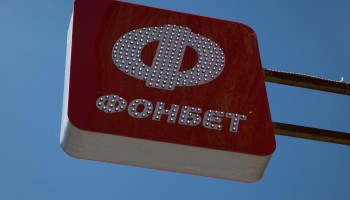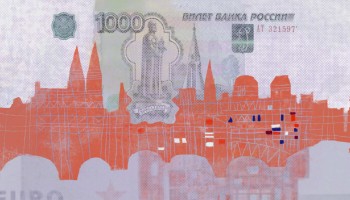Ask most people where to shop in Europe and you’re unlikely to hear Luxembourg named alongside the Champs-Élysées in Paris or London’s Oxford Street.
But data in Luxembourg’s UBO registry shows the tiny Grand Duchy is a favored destination for oligarchs, tycoons, and royalty looking to snap up some of the continent’s most expensive real estate.
Experts say Luxembourg’s low taxes, stability, and financial secrecy laws make it a favored destination for wealthy investors looking for European properties, especially in the U.K., Germany, and France.
“This was possible because of the treaties between Luxembourg and other countries, for example, France and Spain,” said Alexander Zakharov, a partner at business advisory firm Paragon Advice Group.
“The French and Spanish tax authorities are uncovering schemes that have no other economic meaning than creating artificial conditions to minimize taxes.”
OCCRP and our partners have discovered dozens of properties worth hundreds of millions of euros that were bought through Luxembourg companies, from villas on the French Riviera to German architectural gems. We put some of our most interesting findings into the interactive map below.
In some cases, the source of the funds used to make the purchases is unclear. In one case, involving Indonesian paper and palm oil tycoon Sukanto Tanoto, experts said the transaction was so suspicious it should have been flagged to authorities.
OCCRP contacted all of the people mentioned in this graphic for comment. Only one sent a comment for publication.
Keep scrolling down to find out more.
Villas on the French Riviera, historic German office buildings, luxury hotels in Rome — these are some of Europe's most desirable properties.
Keep scrolling to find out more
And they are all owned through the tiny country of Luxembourg.
Sukanto Tanoto is an Indonesian paper and palm oil tycoon who has been accused of pillaging Indonesia's forests, human rights abuses, tax evasion, and questionable profit-shifting practices. Tanoto bought a historic complex in central Munich for nearly 350 million euros in 2019 using companies in Singapore, the Cayman Islands and Luxembourg. His son, Andre, bought a prestigious building in Düsseldorf using a similar structure for a little under 50 million euros the same year.
Click on the icons on the map to find out more. When you're ready to move on, keep scrolling down.
By the time he turned 30, Russian Sergey Toni had built up a network of businesses worth at least 66 million euros. Among his assets are a castle near Paris; a villa and a house on the French Riviera; two houses, three flats, and land in the Alicante region of Spain; a flat in Paris; and even a depot and land in Germany. It’s unclear how Toni could afford such a collection of properties. His father, Oleg Toni, is the deputy managing director of Russia’s state monopoly Russian Railways, which has a reputation for being corrupt.
Explore the properties by clicking on the icons on the map...
Andrey Goncharenko and Anatoly Kozeruk are both former top managers of a subsidiary of Russian state gas company Gazprom. In 2013, the year they both left their jobs, Russian media reported they were investigated for extorting money from some of Gazprom’s major contractors, but the findings were never made public. Reporters found that both men purchased elite properties in France worth tens of millions of euros through Luxembourg companies.
Marouane Mabrouk is the ex-son-in-law of former Tunisian dictator Zine El Abidine Ben Ali and one of three brothers who manage the country's second-largest private family group. Following the 2011 revolution, he was sanctioned by the European Union in response to a money-laundering investigation and his assets were frozen. Those assets did not, however, include a luxury apartment in Paris that he owned through a Luxembourg company until last December, when the company was dissolved. In January 2019, the Council of the European Union removed him from the sanctions list and lifted the freeze on his assets.
Rumors of Lebanon Central Bank Governor Riad Salame’s offshore wealth have swirled around Beirut for years. Last year OCCRP and Daraj.com revealed he had quietly invested in overseas assets worth nearly $100 million, including property bought in the U.K., Germany, and Belgium through three Luxembourg companies.
Najib Mikati is Lebanon's former prime minister and one of the country's half dozen billionaires listed by Forbes. In October, 2019, a prosecutor reportedly accused him, his brother, his son, and the nation’s biggest bank, Bank Audi, of illegally benefiting from housing loans subsidized by the central bank. Mikati denied the allegations, which he says are politically motivated. Reporters found Mikati owned land on the French Riviera through companies in Luxembourg and France. A spokesperson confirmed he owned the properties, adding: Mr. Mikati is very transparent, and his source of wealth is a matter of public information.”
Mohammed bin Rashid Al Maktoum is the ruler of the Emirate of Dubai and owns a vast business empire, reportedly worth an estimated $14 billion, making him one of the richest royals in the world. The Emir's U.K. property empire alone is reportedly worth more than 100 million British pounds. IRPI found he also owns several properties in Rome through a Luxembourg company, including the building that houses the luxury J.K. Place Hotel on Via di Monte d'Oro.
Anar Mahmudov is the son of Eldar Mahmudov, who until October 2015 was Azerbaijan’s National Security Minister. During his decades-long career, the former official's family built a business empire in Azerbaijan, as well as a sizable luxury real estate portfolio in Spain and the U.K. Anar Mahmudov, Eldar’s 37-year-old son, oversees most of these assets. The Mahmudov family claims that their wealth is inherited from an ancestor, but reporters found no evidence of family wealth prior to Eldar Mahmudov’s career as a public official.
Sheikh Hamdan bin Zayed bin Sultan Al Nahyan is an Emirati politician and the fourth son of the United Arab Emirates’ founder. He served as the country’s deputy prime minister and later, in 2011, reportedly attempted to carry out a coup but was stopped by his family. Records show he is the beneficiary of a Luxembourg company that owns Lacon House in London, which the investment management fund Blackstone reportedly sold to an unnamed investor for 285 million British pounds in 2017. The Luxembourg company has said it plans to transfer Lacon House to a Jersey-based structure.
Graphic: Mark Nightingale and Edin Pasovic/OCCRP
Contributors: Sana Sbouai, Cecilia Anesi, Kira Zalan, Rana Sabbagh, and Tom Stocks.






